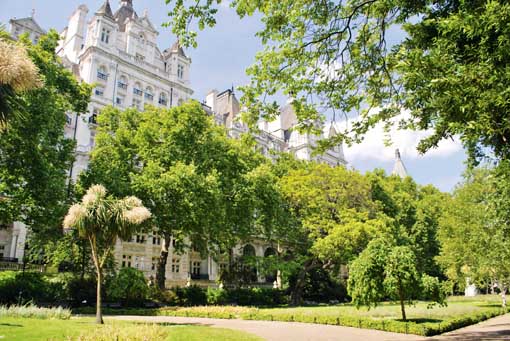Farmers Club – where business meets pleasure

Some might say the Farmers Club is simply an exclusive, gentlemen’s social club. But there is a lot more to this 160-year old London establishment than you might think. Charles Abel talks to its officeholders
Who is the club aimed at?
It’s a fellowship of the farmed countryside, says club chairman and dairy farmer Richard Holland. Every member owns, farms, manages or has strong connections with the land, including farmers, politicians, agribusiness men and women, rural bishops, and smallholders with rare breeds. And the membership is growing, with nearly 6,000 to date.
Is it still relevant in the 21st century?
As farming enters a new and exciting era, the club provides commercial and social support, as it always has.
This year alone it has pioneered a major cross-EU initiative to boost research, development and knowledge transfer in the livestock sector, hosted a briefing by Defra secretary Caroline Spelman, invested £22,000 in travel bursaries, launched a new leadership initiative and organised a programme of business and social events throughout the UK.
A highlight this year has been its leading role in a pan-EU project to improve livestock productivity and greenhouse gas emissions by fostering greater collaboration in research, development and knowledge transfer. It’s backed by 12-month funding from the UK’s Technology Strategy Board.
“The potential is huge,” says Mr Holland. “If just one UK levy board and one other EU levy board agree to co-finance development work, that could save each levy board £200,000 a year, with the same or maybe even better outcomes.”
What social activities does the club offer?
This year included dinners and opera visits as well as the Chelsea Flower Show, a river cruise to the Thames Barrier and guided walks of Westminster and London’s legal district.
Mixing business with pleasure, it has had receptions at all the major agricultural shows around the UK, including the Cereals and Dairy events, an overseas study tour to Germany’s Rhineland and a lunch at the House of Lords.
Apart from the secretary of state’s unique briefing for members, the club has also organised visits to Lord Vestey’s Velcourt-managed Stowell Estate in the Cotswolds, a biogas unit near Cirencester and a range of farms in the south-west.
How is the club supporting the industry?
This year the Farmers Club Charitable Trust made grants of £22,000 to send six UK agriculturalists overseas to broaden their experience and facilitate the exchange of academic knowledge.
Over the past 30 years, the Trust has provided over £500,000 of funding to send 120 beneficiaries around the globe. “It is heartening to see the enthusiasm of the applicants and to be able to bring their initiatives to life through the funding made possible by the Charitable Trust,” says FCCT chairman and Suffolk farmer John Kerr.
Developing the skills of the industry’s up-and-coming leaders is the focus for a further initiative, which provides bursaries for four individuals to participate in an intensive residential management training course with the Windsor Leadership Trust. “The purpose is to give the best of farming’s future leaders exposure to thinking from a wide range of industries and commerce to better equip them to meet the challenges our sector will face over the coming decades,” says John.
Now in its 14th year the Farmers Club Pinnacle Awards, supported by the Cave Foundation and ADAS, champion farming’s managers of the future, putting eight finalists from colleges across the UK through their paces during an intense day of scrutiny.
This year’s winner, Ellena Pitts from the Royal Agricultural College, Cirencester, triumphed with a business model for developing a traditional on-farm bakery to exploit existing buildings on a Devon farm near Exeter.
What do members get?
The Farmers Club occupies a building overlooking the River Thames in central London, with more than 50 bedrooms, lounge, bar, dining room, function rooms and a balcony overlooking the river and the London Eye.
Every other month members receive the Farmers Club Journal, which includes club activities and articles.
The club also has reciprocal arrangements with similar clubs in other countries. An under-30s section has its own schedule of serious and social visits and events.
Can you do business in the club?
Meeting rooms are available to hire and the business facilities have been greatly improved. A dedicated Business Centre now offers computer access, wi-fi in all areas of the club and modernised meeting rooms with plasma screens.
What does it cost to join?
Membership costs vary, but for a country-based family member, including full use of the club by spouse/partner and children under 18, the annual fee is £265. You can find room rates on the website (www.thefarmersclub.com) – from £44 single to £80 double en-suite (weekend) or £62 to £110 (weekdays).
How do you join?
Applicants should be proposed by two club members (the club can help you find proposers). Find out more at www.thefarmersclub.com or contact membership secretary Mark Fairburn (020 7925 7102 membership@thefarmersclub.com) for an application form.
The Farmers Club is giving one year’s free membership to all finalists in the 2011 Farmers Weekly Awards. Find out more about the club at www.thefarmersclub.com and about the awards at hhere.
